The Kairos Project is an alternative educational track within the Master of Divinity, Master of Arts in Christian Leadership, and Master of Arts (Bible and Theology) programs that facilitates flexible learning through contextually integrated educational moments and adaptable assignments. It is designed specifically for individuals who are actively engaged in ministry. As we enter the third year of this project, it is helpful to reflect on some of the early results and what we have learned. Last week, we looked at the early results as they relate to enrollment and reach. Today, we shift our focus and look at the early results as they relate to the impact Kairos has had on our curricula, assessment of student learning, and operational efficiency.
Curricula
The Kairos Project has impacted the curricula of the seminary in many ways. The Master of Divinity, Master of Arts in Christian Leadership, and Master of Arts (Bible and Theology) all have educational tracks that utilize the Kairos philosophy. At its core, the philosophy behind the Kairos Project is based on integrated learning that works toward specific outcomes. While there is a course structure behind the curriculum, it is learning outcomes, not the courses that hold the most value. To put it simply, the outcome is more important than the process because we believe the process might look different for different students who are in different ministry contexts.
When we first began talking about the Kairos Project, we reviewed the learning goals for each of the aforementioned degree programs and then talked about how we might best assess a student’s mastery of each learning goal. This process has proven to be invaluable. This outcome-based philosophy of learning is beginning to be the foundational tool for all that we do, not just what we do within the Kairos Project. In that way, one of the remarkable early results of the Kairos Project is that it has transformed the way we think about all courses, degrees, and educational opportunities. The philosophy that gave rise to the Kairos Project is filtering into every corner of our curriculum. In doing so, it has caused us to think more intentionally about assessment.
Assessment
In the world of theological education, the word assessment carries many different meanings. It can refer to student learning assessment, program assessment, or institutional assessment. Regardless of how the word is used, it is always referring to a process wherein data about a particular experience is gathered and interpreted and then used to inform decisions regarding possible changes and therefore guide the implementation of those changes. Put another way, it is an evaluative process that is used to enhance learning, programs, and institutions.
Sioux Falls Seminary has had an assessment process for many years. With the addition of the Kairos Project, the need for a high-quality student and program assessment process became evident. With students working on various assignments and doing so in unique ways, we needed a method for ensuring students were still making progress toward the learning goals for the degree. At the same time, we needed to be able to aggregate this data with the experience of students in the classic educational track to see where there might be gaps or inadequacies in our programs. Ultimately, the goal was to use this data to inform strategic decisions related to the institutional as a whole.
The result has been the development of a comprehensive Institutional Assessment System that pulls data from many different aspects of our work, including student learning and program assessment, and brings to light areas in which the seminary is doing well or could improve. Such a system helps us monitor how well we are stewarding the mission, vision, and resources of the institution.
Our comprehensive system for assessment is quite valuable and arguably the most notable impact the Kairos Project has had on the institution. It is our progress in student learning and program assessment, however, that excites me the most. We have built on the culture of assessment that existed at the seminary by creating new methods for documenting and acting upon the data gathered through assessment.
Stated simply, the Kairos Project has helped us develop ways to walk alongside students who are pursuing a customized learning journey and to ensure that each student, regardless of educational track, receives a similar experience and achieves the same important transformational goals of our degree programs.
Of course, increasing enrollment, expanding reach, better curricula, and enhanced assessment processes are great, but if the institution cannot build these enhancements on a financial model that works then it hasn’t really succeeded in developing a new pathway for the future of theological education.
Operational Efficiency
If you read any of the articles I posted in our series on student debt in seminaries, then you know that seminaries tend not to be the most operationally efficient organizations. Indeed, nearly 70% of seminaries operate on a deficit each year when we adjust for a 5% draw from endowment funds. As we developed the Kairos Project, we wanted to reimagine how seminaries operate at the same time. The hope was that we would not only create a stellar educational model that could be replicated at seminaries across North America but was also fiscally responsible.
The early results are promising and challenging at the same time. From what I can find, Sioux Falls Seminary’s structural budget has never been healthier than it has been over the past three years. That is “finance talk” for saying that we steward our finances well on an annual basis. The operational changes made in light of the Kairos Project are an important part of this reality. It is less expensive for us to operate the Kairos Project track within each degree program, which means we are able to make the program genuinely more affordable for students by charging less tuition.
I don’t want to gloss over what I just wrote because it is important for the future of theological education. The Kairos Project track is nearly one-third the cost of traditional theological education. Yet even at that price, the institution is able to operate within its means. Imagine a future where the average cost of a high-quality Master of Divinity degree is $10,000 instead of $40,000, and students are able to pursue the degree within the context of their ministry settings. The early results from the Kairos Project reveal that future is already here.
I confess, I am a little excited about the impact the Kairos Project is having on our institution, but also on the impact it has on the conversation around theological education. In addition to enrollment, reach, curriculum, assessment, and operational efficiency, the project is proving that agile program development can work well. Come back next week as we look at what I mean.
Note: This is a repost of an article I created for Sioux Falls Seminary, which can be found here.






